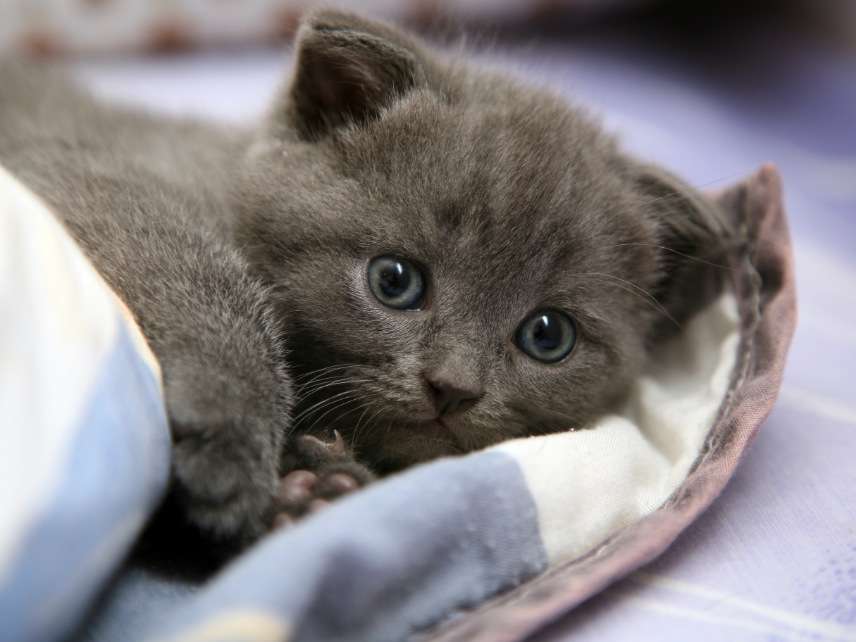Bill to End Federally Funded Kitten Murder Runs Into Opposition From Cat-Killing Bureaucrats
A new bill would end the USDA's practice of euthanizing kittens after feeding them parasite-infected meat.

U.S. Senator Jeff Merkley (D–Ore.) has decided to close out the year by introducing the most unobjectionable piece of legislation ever conceived.
Called the Kittens In Traumatic Testing Ends Now Act, or KITTEN Act, Merkley's bill—introduced last week—aims to stop the Department of Agriculture's (USDA) current practice of killing off cats they breed for research, requiring instead that these kitties be put up for adoption.
"The KITTEN Act will protect these innocent animals from being needlessly euthanized in government testing, and make sure that they can be adopted by loving families instead," Merkley said in a statement.
The bill is a response to revelations from the White Coat Waste Project, an anti-animal testing group, about the USDA's practice of essentially using kittens as parasite incubators at its Animal Parasitic Diseases Laboratory in Beltsville, Maryland.
Carlin Becker described the grisly practice for Reason in September:
"Documents obtained by the [White Coat Waste Project] show the department has been breeding around 100 kittens a year for almost 50 years just to infect them with a parasite that can cause toxoplasmosis, a disease that can lead to miscarriages and birth defects in humans and is a leading cause of death from foodborne illness. The department collects the kittens' feces for two to three weeks and then simply euthanizes them with a shot of ketamine to the heart."
This is a pretty shocking practice, considering the undeniable cuteness of the average kitten. It's made worse by the fact that euthanizing the cats is almost certainly unnecessary.
According to the Center for Disease Control, the toxoplasma found in the research kitties' poop only poses a risk to humans for up to three weeks after the animal is first infected. The parasite is easily treated in both humans and cats, and most people who become infected with toxoplasma do not even require treatment.
Nevertheless, the USDA has continued to defend the practice, arguing that it's just following orders best practices in animal research, and that the risks to adoptive families are just too great to let these cats live.
"Our goal is to reduce the spread of toxoplasmosis. Adopting laboratory cats could, unfortunately, undermine that goal, potentially causing severe infections, especially with unborn children or those with immunodeficiencies," a USDA spokesperson said to CNN back in May.
All things considered, this is a remarkable testament to a bureaucracy's habit of just continuing to do the same thing it's always done regardless of how cruel or unnecessary it might be. Indeed, it's hard to think of anyone that could be opposed to ending needless, government euthanasia of potential fur babies.
No action has been taken on Merkley's bill, as the text of his legilsation has not been released. A companion House bill—which would prohibit any "painful or stressful" USDA experimentation on cats—was introduced back in May, but has languished in committee for months.
Even in these divided times, one would hope that Americans could at least rally around the cause of saving a few cute kittens from needless, taxpayer-funded annihilation.
Rent Free is a weekly newsletter from Christian Britschgi on urbanism and the fight for less regulation, more housing, more property rights, and more freedom in America's cities.


Show Comments (87)